2024

Ciabhan Connelly is a PhD student in Human Centered Computing at Georgia Tech. His research focuses on political communication over social media. He is currently focused on understanding pipelines to extremist spaces, particularly the manosphere, understanding how these groups recruit and if non-toxic communities can introduce moderation interventions to prevent their members from being recruited to these extreme communities. He is passionate about applying mixed methods and interdisciplinary approaches to these issues. Outside of research, Ciabhan enjoys fiction writing, distance running, and tabletop roleplaying games.
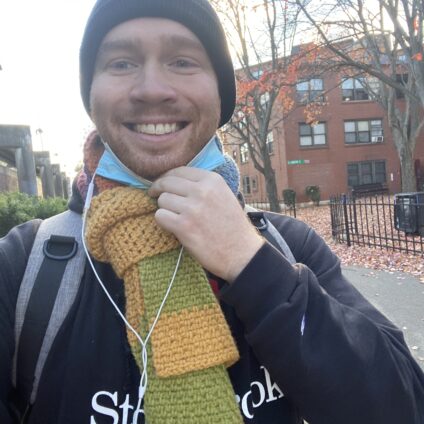
Christopher Curtis is a PhD student in Computer Science at Northeastern University. He is particularly interested in the intersection of the future-of-work, human-AI interaction, and advancing these areas through application development. His research focuses on the design, development and testing of AI-powered applications for workers.

Audrey Chang is a Harvard undergraduate studying Statistics, Computer Science, and Sociology. Her research interests include human-computer interaction and trustworthy machine learning. Previously, she has contributed to developing dataset documentation at the Data Nutrition Project, researching algorithmic fairness with the AI & Philosophy Lab, conducting fieldwork to characterize dynamics of municipal tech adoption in the City of Boston, and co-leading Harvard’s Responsible Computing Collective to facilitate undergraduate opportunities for research, advocacy, and education. Outside of research, Audrey loves hiking, observing, and learning about marine biology and statistics.

Reilly Desai is an undergraduate Robotics Engineering student pursuing a bachelor’s at Worcester Polytechnic Institute. Last summer, she worked at WPI’s Human-Computer Interaction Lab studying gesture analysis on capacitive fabrics. She is particularly interested in the intersection of AI and robotics, focusing on computer vision, navigation algorithms, and their practical applications to benefit society. Outside of research, Reilly is active in WPI’s theatre department and spends a lot of her free time making art and doing graphic design!

Jeremy Freiburger is a junior at the University of Washington studying Computer Science. Currently, he leverages his interest in Human-Computer Interaction (HCI) and disability studies at the UW Makeability Lab, analyzing crowd-sourced data for Project Sidewalk to enhance sidewalk accessibility across the US. This experience has motivated him to use technology for real-world impact, empowering individuals with disabilities through innovative HCI solutions. His future goals include pursuing a Ph.D. in a related field.

Sneha Sriram is a Wellesley College undergraduate studying Computer Science and Philosophy. Currently, she is working at Wellesley College in the Gadiraju lab exploring how large language models represent people with disabilities. Previously, she has worked on the MIT Media Lab Social Robots project, researching the ethical implications of social robots in mental health spaces. Her research interests include ethical and equitable development of AI, and representative computing. Outside of research, Sneha is active in Cafe Hoop, a student run business collective at Wellesley College, and spends her free time finding live music and exploring side quests.
2023
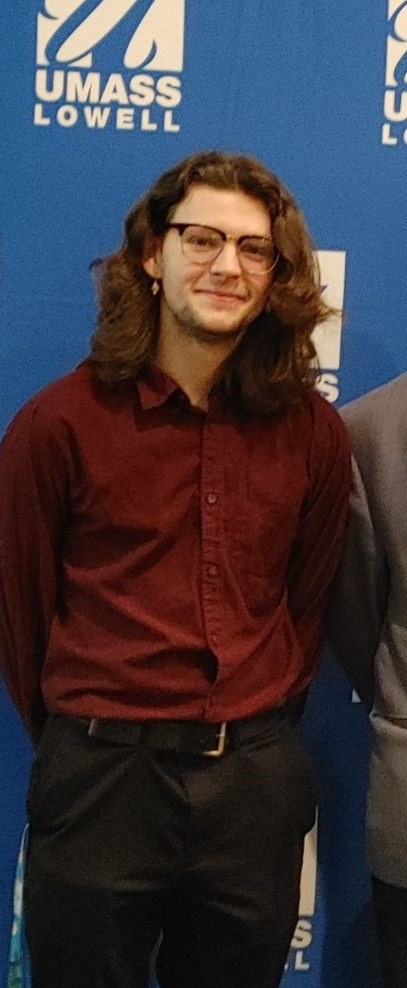
Jacob Breen is an undergraduate Computer Science student from the University of Massachusetts, Lowell. His interests are in robotics and span from sustainable robotics to wearable technologies. He has worked in UMass Lowell’s NERVE Center to help create robotics simulations, GUIs for wireless testing apparatus, and the development of an easy to configure program for students to learn programming. He is also the President of the RiverHawk Robotics club, where he manages, organizes, and teaches in the club.
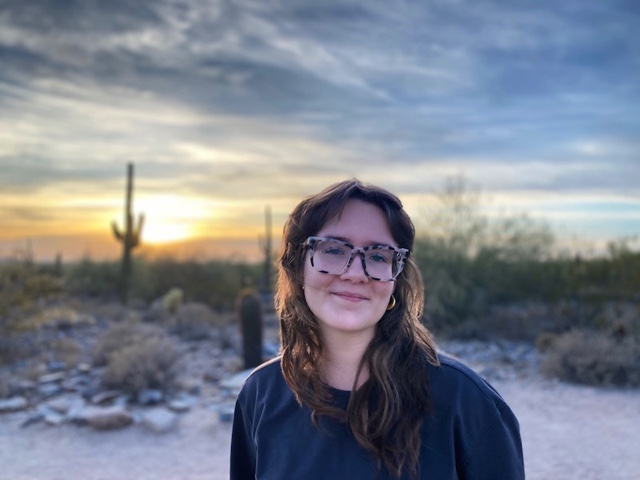
Emily Doherty is a PhD student in Computer Science and Cognitive Science at the University of Colorado Boulder. She is particularly interested in the intersection of cognitive neuroscience, human-AI interaction, and making these areas more accessible and equitable. Her research focuses on measuring social, cognitive, and affective states using non-invasive brain measurement tools in real-world situations (aviation, education, driving, AI-interaction, etc.).
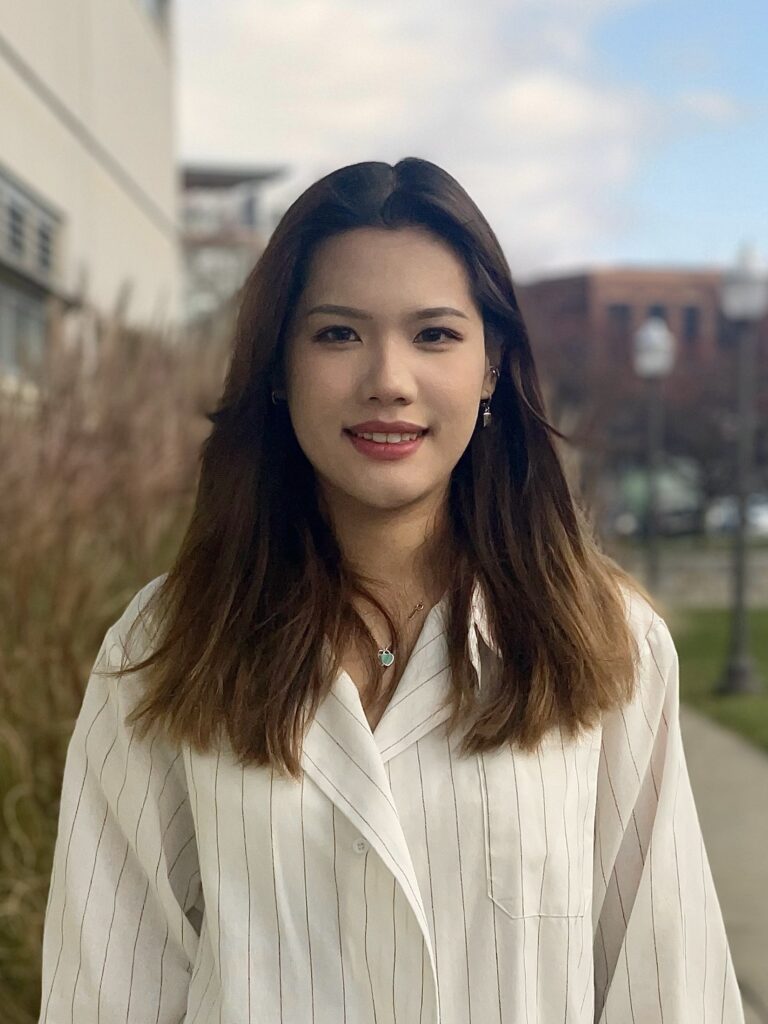
Jiayuan Dong participated as a Ph.D. student majoring in Industrial and Systems Engineering with a concentration in human factors at Virginia Tech. Her research projects focus on emotions and trust in human-computer interaction (HCI). She has various experiences with different kinds of social robots, especially using them as intelligent agents in automated driving and other dynamic environments. Her future career goal is to become a research scientist in the HCI field. Other than her research work, she loves playing music, solving puzzles, and traveling.
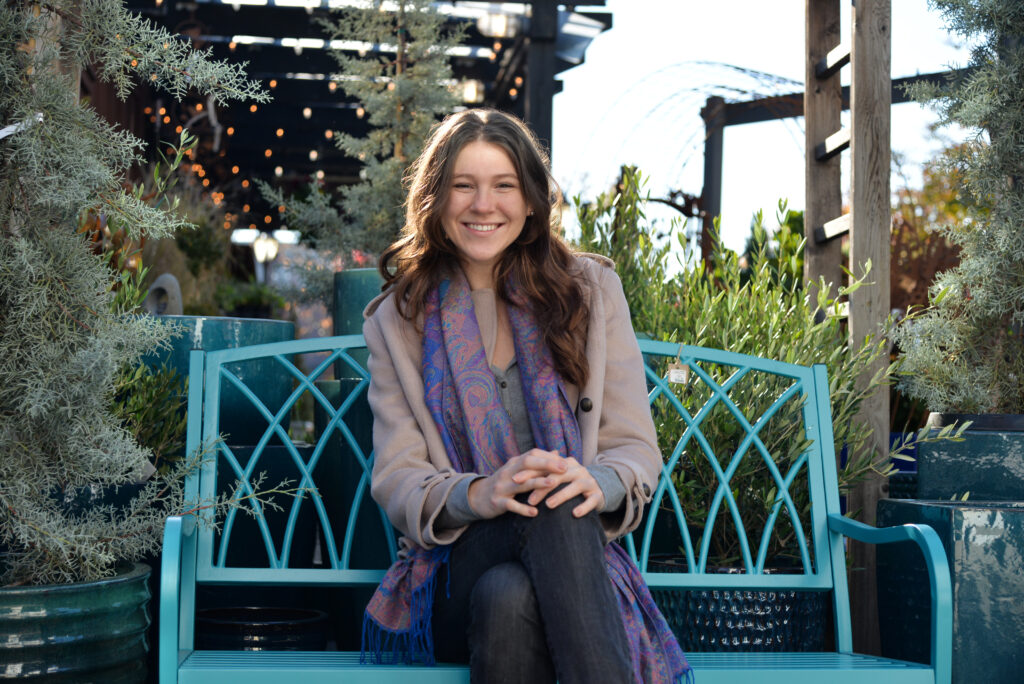
Grace Douglas participated while being a PhD student at the University of Washington studying Industrial and Systems Engineering. Her research interests include human-automation interaction, driver safety, transportation-induced pedestrian exposure, and statistical inference; with a current focus on discovering how socially aware automation can interact more appropriately with drivers and other road users in mixed-autonomy driving environments. As a research assistant in the Human Factors and Statistical Modeling Lab, her research has involved developing pedestrian risk-to-collision estimates and behavioral models that describe driver secondary task engagement. Outside of research, Grace enjoys playing soccer, distance running, and has recently gotten into rock climbing.

Toshali Goel is a student at Wellesley College, majoring in Computer Science and English. She is interested in the intersections between AI and HCI, and is passionate about creating equitable technological experiences for all people. In her free time, she loves to cook, paint, read, and watch movies!
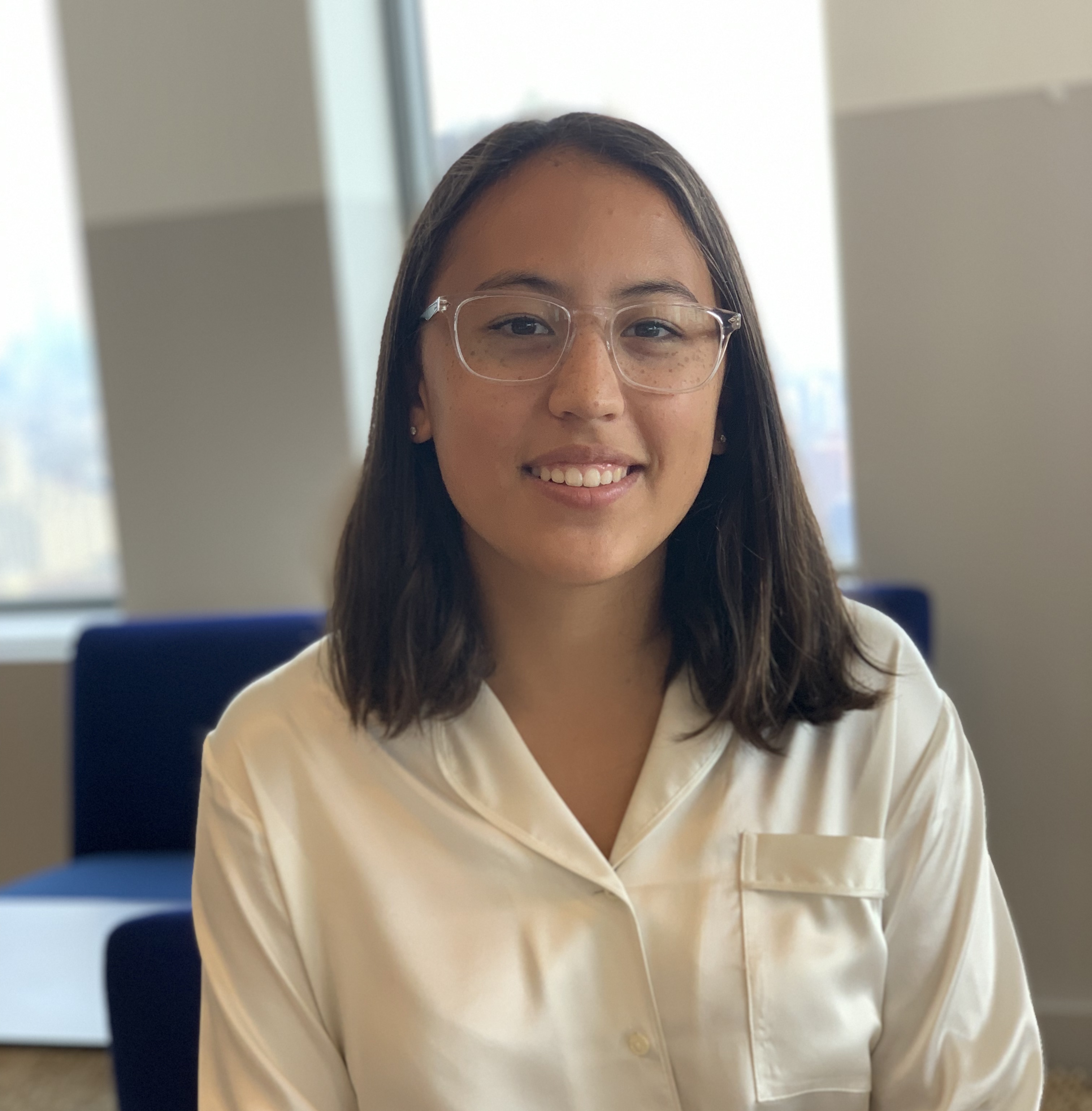
Anna Lieb is a member of the Wellesley College Class of 2024 studying Political Science and Data Science with a concentration in Computer Science. She is excited to study the ways that digital technologies and related technological institutions and governance influence human activities. She is also interested in using data analysis for computational social science applications. In her free time, Anna enjoys distance running and sipping hot coffee & tea.
Alumni of prior IRES programs: 2014-2019
2019

Jocelyn Dunkley participated as a junior Computer Science and German major at Bryn Mawr College. She is interested in applications in VR and education and is excited to build her skills. She is passionate about the intersectionality of technology and the humanities and aims to bridge the gap between the two in her work. During the year she works on the History of Women in Science project as part of a Digital Scholarship Research Assistant at Bryn Mawr College. The project aims to showcase the achievement and processes of women in science at Bryn Mawr College in the early 1900s, since women’s achievements have usually been erased from history. After college, Jocelyn hopes to work in a startup environment in the VR sector.
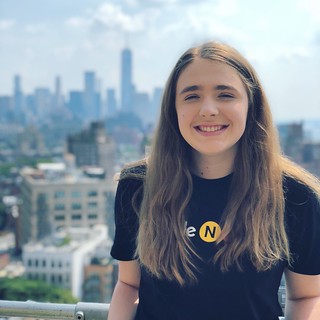
Maxine Hood participated as a 2019 graduate of Wellesley College, majoring in Computer Science. She has a background in software engineering and is excited to expand her knowledge and experience with human-computer interaction. In her free time she enjoys biking, exploring, and baking.
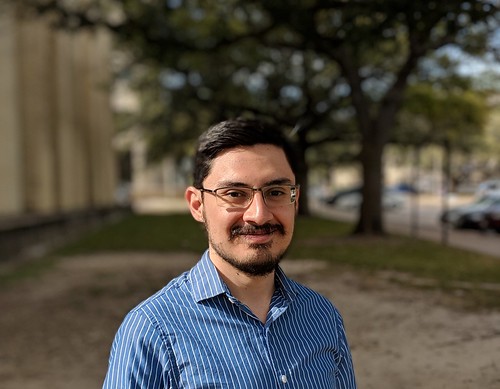
Raniero Lara-Garduno participated as a PhD Student in Computer Engineering at Texas A&M University. In the domain of HCI he is most interested in the intersection between machine learning’s powerful capabilities of recognizing behavior, and how it may be used to identify a human’s cognition whether it may be informed by culture, age, and cognitive decline or development. His research focus involves analyzes a human’s input data on digital systems that may help identify early signs of cognitive decline. He wishes to pursue a career to build digital cognitive impairment testing tools from knowledge gained in this research. In his free time he enjoys playing music, travel, and learning about new cultures and history.
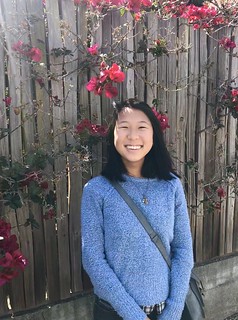
Arianna Ninh participated as a senior majoring in Cognitive Science at University of California, Berkeley. She is interested in human-computer interaction, digital fabrication, and designing tangible user interfaces that support inclusivity and sustainability. As a part of the Hybrid Ecologies Lab at UC Berkeley, she has been working on creating novel wearable devices to understand how embodied interactions can augment self-expression and creativity. In her free time, she loves hiking, exploring, learning about plant biology and food science, and tackling art and fabrication projects.
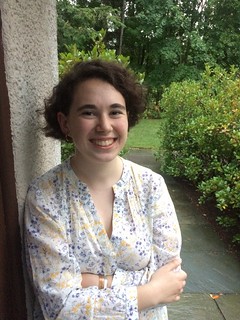
Annabel Rothschild participated as a member of the Wellesley College class of 2020, majoring in Computer Science. She is intrigued by the ethical implications of each step of the data lifecycle, particularly how the way data is displayed and shared can influence a viewer’s perception. She hopes to pursue a PhD in a computer science that allows her to further explore this topic.
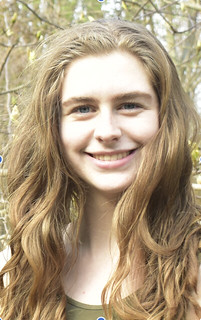
Maggie Ugelstad participated as an incoming Senior at Wellesley College majoring in Computer Science. She is particularly interested in the intersection of Political Science and Computer Science and is excited to learn about how user interfaces can be improved for better levels of accessibility. She also studies Spanish and enjoys photography, cooking, and playing sports in her free time.
2018

Gabrielle LaBorwit participated in the IRES program as a rising Junior at Bucknell University majoring in Computer Science and Cognitive Psychology. She is most interested in the intersection of the two and the ethical ramifications that come along with our world’s ever-improving technology. Post-college, Gabrielle aspires to get her PhD in HCI and further delve into the subject of ethical computing and technology. In her free time, she enjoys photography, exploring, and baking.
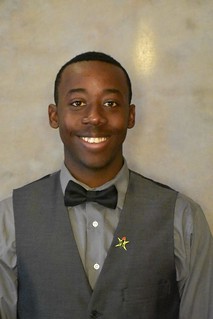
Theophile Nkengfack participated in the IRES program as a senior Electrical Engineer at the University of New Hampshire with a newly discovered passion for Human Computer Interactions (HCI). He spent his senior year working with Pupil Labs and Ergoneers D-Labs eye tracker technology trying to understand human behavior when determining legitimate/fraudulent email content. He hopes to pursue a masters/PhD degree with HCI as a focus. During his free time, you can find him playing a sport or trying to learn a new language.

Stepheny Perez participated in the IRES program as a master’s student in Computer Science at New Mexico State University, where she also earned her B.S. in Computer Science. She will be doing her research with Dr. Son Tran on neural networks. She is most interested in artificial intelligence and computer vision, particularly within the domain of self-driving cars.
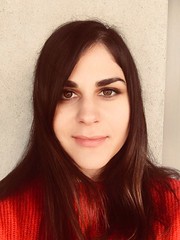
Denisa Qori participated in the IRES program as a PhD candidate in Computer Science, currently working in the Advanced Interactions Research Lab at Drexel University. Denisa’s research focuses on developing efficient human-centric systems that accurately adapt their behavior based on an individual’s brain sensor data as an implicit input. Such systems can be used to improve human quality of life, for example, by helping an individual feel less stressed, be more focused on a task, learn more easily, or be more creative. Primarily, Denisa has relied on data obtained using functional near-infrared spectroscopy (fNIRS) brain-computer interface(BCI). fNIRS is a safe, portable, non-invasive brain imaging technique that uses light to infer hemodynamic changes in the brain. To deepen the quantitative analysis of fNIRS time series data, Denisa has been exploring several deep learning techniques. Deep learning has been successfully applied to many computer science applications, but in a limited way to fNIRS or other physiological signal data.
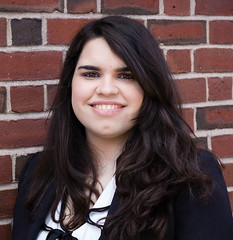
Diana Tosca participated in the IRES program as a senior from Miami, FL studying Computer Science and Music at Wellesley College. Diana is interested in the intersection between technology and music.
She plays the violin and does nail art in her free time.

Bella Virgilio participated in the IRES program as a junior at Wellesley College majoring in Media Arts and Sciences. She is interested in interface design, human-computer interaction, and mixed reality. She is excited about the practical applications of emerging technology and is looking forward to learning about how user interfaces can be optimized for accessibility.
2017

Lauren Futami participated in the IRES program as a junior majoring in Media Arts and Sciences at Wellesley College. She is interested in human computer interaction, product design, and video production. She is also excited to participate in research to discover how large displays and augmented reality can combine to engage people in new learning techniques.

Dana Hsiao participated in the IRES program as a senior at Wellesley College majoring in Computer Science. She is excited about the potential that Augmented and Virtual Reality have in both video games and practical pursuits. She is also interested in the processes and methods of computer security.
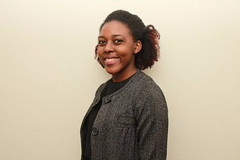
Maleah Maxie participated in the IRES program as a junior at Wellesley College. She is majoring in Cognitive & Linguistic Sciences and Music. Next year, she will be studying the effectiveness of digital technology in the classroom. She is interested in the safety implications of user interface design in autonomous vehicles and other technology critical to our society’s infrastructure.

Calvin Liang participated in the IRES program as a master’s student in Human Factors at Tufts University where he also earned his B.S. in Engineering Psychology. He currently conducts Brain-Computer Interaction research under Professor Rob Jacob. Calvin is most interested in using technology as a way to optimize the human experience and hopes to pursue a PhD in HCI in the future. In his free time, he enjoys swimming, reading, and listening to podcasts.

Michelle Quin participated in the IRES program as a sophomore at Wellesley College double majoring in Media Arts & Sciences and English. She is currently focusing on HCI and Front-End Web Development, and will be studying Computer Science with an emphasis on Machine Learning at the University of Oxford her junior year. Michelle hopes to go into HCI graduate studies in the future and is interested in working to make user interfaces more intuitive as well as reflective of today’s diverse society.
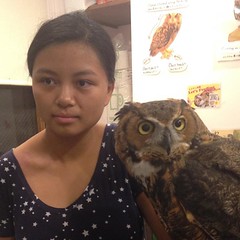
Midori Yang participated in the IRES program as a sophomore at Wellesley College majoring in Media Arts and Sciences. She currently works at the college’s HCI lab designing applications for large touchscreen surfaces, but wants to branch out into interactive design for mixed/virtual reality. She is interested in designing interfaces that can be used to facilitate digital design experiences for non-technological artists.
2016

Whitney Fahnbulleh participated in the IRES program as a junior at Wellesley College majoring Media Arts and Sciences and minoring in Chinese. Whitney is spending her junior year studying data analytics and visualization, human computer interaction, and is self-studying game design. She is most excited in the possibilities of virtual and augmented reality for creating immersive environments for gaming and knowledge delivery. She looks forward to graduate studies in HCI and game design.

Taylor Gotfrid participated in the IRES program as a senior double majoring in Computer Engineering and Cognitive Science at University of California, Santa Cruz. She is greatly interested in user experience research and making technology more accessible for those with developmental disabilities. She currently conducts research in the Interactive Systems for Individuals with Special Needs lab under Professor Sri Kurniawan developing games for individuals with developmental disabilities that will assess their understanding of basic concepts such as object relations and their problem-solving abilities. After she graduate she intends to pursue a Ph.D in HCI or Interaction Design.

Aditi Joshi participated in the IRES program as a senior at Olin College majoring in Engineering Design. She is especially interested in human centered design and connecting actual products and features to the people on the other end of the screen. She thinks that it is important to think of design as a constant process, starting from user research and talking to real people, co-designing with them and getting feedback, and actual implementation of these ideas. In her professional life she hopes to create products that make a social impact in the world, using engineering to help empower, educate, and assist the extremely different types of people in today’s world.

Dillon Montag participated in the IRES program as a senior mathematics and computer science double major at Westmont College. Previously, Dillon has conducted research in the fields of network science and big data, where he analyzed student performance within the UCLA mathematics department. He is interested in the intersection of computer science with the other social sciences and is excited to be transitioning into the industry.

Elizabeth Stowell participated in the IRES program as a PhD student in Personal Health Informatics at Northeastern University in Boston. She earned her B.A. in Health and Society at Wellesley College. She currently works in the Wellness Technology Lab that conducts that creates and evaluates wellness technologies to address health inequities. Elizabeth is interested in using technology to empower people to make informed decisions about their own health, and in using technology to facilitate health activism.

Donovan Toure participated in the IRES program as a recent graduate of New York University where he earned a Master of Science in Integrated Digital Media. His focus was on on Virtual and Augmented Reality, Game Design as well as Human Factors Engineering. He is interested in how Virtual and Augmented Reality technologies can be utilized in mission planning, training, and as psychological countermeasures in long-term space missions for humans living off world.

Natalie Warren participated in the IRES program as a junior Cognitive Science major at Yale University. As a member of the Yale Social Robotics Lab, she enjoys exploring technology’s role in improving cognitive functioning and social interaction. Natalie is interested in studying the effects of digital media on attention and performance, especially in children.

Anna Wong participated in the IRES program as a sophomore studying at Carnegie Mellon University. She is a Statistics and Machine Learning major. Anna entered the HCI field as a research assistant in CMU’s Human Computer Interaction Institute, where she has worked with data collected from wearable technology. Currently she is fascinated by big data and biometric data. She is most interested in developing tools that will allow users to interact with their personal data in a direct and accessible way.
2015
Chun-Cheng Chang participated in the IRES program as a PhD student in Industrial and Systems Engineering at the University of Washington in Seattle. He currently works in the Human Factors Statistical Modeling Lab under the supervision of Dr. Linda Ng Boyle where he conducts studies evaluating the distraction properties of voice control interfaces. He is interested in how cognitive workload measurements can be used as a guide for better automotive user interfaces.
Jennifer Cooper participated in the IRES program as a student pursuing a Master of Science in human factors/ergonomics from the University of Minnesota. She earned her B.A. in psychology from St. Catherine University in 2012, where she discovered a passion for research. She is currently working in a human factors lab at the U of M that conducts a range of research studies on in-vehicle warning systems, at-risk driving populations, and human-centered safety designs. Her research interests are human-computer interaction, technology-mediated learning, and transportation safety.
Chloe Eghtebas participated in the IRES program as a senior Electrical and Computer Engineering student at Olin College of Engineering interested in making a positive impact on the world. Chloe is passionate about cybersecurity, design, entrepreneurship, and electrical and computer engineering. As someone who values higher education and technological innovation, her plan is to continue to increase technical expertise through academia and industry.
Scott W. Greenwald participated in the IRES program as a 5th year Phd student with Pattie Maes at the MIT Media Lab. He is interested in facilitating learning through wearable technologies, remote collaboration and context-aware information retrieval. His work makes use of eye gaze and pupillometry to enhance the ability of systems and remote collaborators to respond to wearers’ cognitive and emotional states. He holds a bachelor’s degree in Mathematics and German from Northwestern University, a master’s in Scientific Computing from the Free University of Berlin, and a master’s in Media Arts and Sciences from the Center for Bits and Atoms at MIT.
Morgyne Weaver participated in the IRES program as a senior at Wellesley College graduating in May 2015. She is a Media Arts and Sciences major and an English minor. Currently she is interested in making tangible interfaces much more intuitive for users, while also decreasing cognitive load. She is drawn to the challenge of creating an interface that many people from different backgrounds will not only be able to easily use, but that they will like to use.
Vicky Zeamer participated in the IRES program as a Media Arts and Sciences & American Studies major from Wellesley College. Vicky is spending her senior year researching how millennials interact with global cities through the MIT Mobile Experience Lab. She gets most excited about user experience research, media ecology, and interface design. She looks forward to getting a PhD in HCI/Interaction Design in the near future.
2014

Drea K. Fekety participated in the IRES program as a PhD candidate in the Human Factors Psychology program at Clemson University, South Carolina. Drea’s research experience and professional interests lie in the fields of experimental psychology, visual perception, and transportation safety, with an emphasis on experimental design and statistical analysis. He is currently focused on solving the human factors challenges faced while driving at night. During his time in the IRES program, Drea helped design and execute a research project investigating the task-evoked pupillary response (TEPR) in mesopic lighting conditions. Find Drea on LinkedIn at http://linkd.in/10rGeT3.

Michael Nguyen participated in the IRES program as a student finishing up his bachelor’s degree in industrial engineering at Montana State University. His research interests include just about anything that user’s have to interface with, such as a website he is currently working on for a United Nations Subcommittee that aims to provide fleet managers with resources. In Germany, his team was tasked to develop a model associated with pupil dilation and cognitive workload under various environmental conditions. His duties included creating, designing, and conducting a study as well as applying various physiological sensors such as the Nexus 10, SMI eye tracker, and the Emotiv EPOC.

Rudra Timsina participated in the IRES program as a graduate student at University of New Hampshire. He graduated with a Bachelors degree in Electrical Engineering from UNH in May 2014. He participated in the UNH IRES program as researchers during summer 2014 in Stuttgart, Germany. The research was to evaluate mental workload under various lighting conditions. In this study Rudra used an eye tracker, a brain computer interface and biofeedback systems to measure various physiological outputs. Rudra’s current research interests are in electronic communications and electromagnetic. Currently he is working with phased array antennas and mercury switches to study beam forming and beam steering in various antenna structures.
Micah Lucas participated in the IRES program as a graduate student at University of New Hampshire. He graduated with a Bachelors degree in Electrical Engineering from UNH in May 2014. He participated in the UNH IRES program as researchers during summer 2014 in Stuttgart, Germany. He explored changes in pupil diameter under different levels of lighting and cognitive load.





